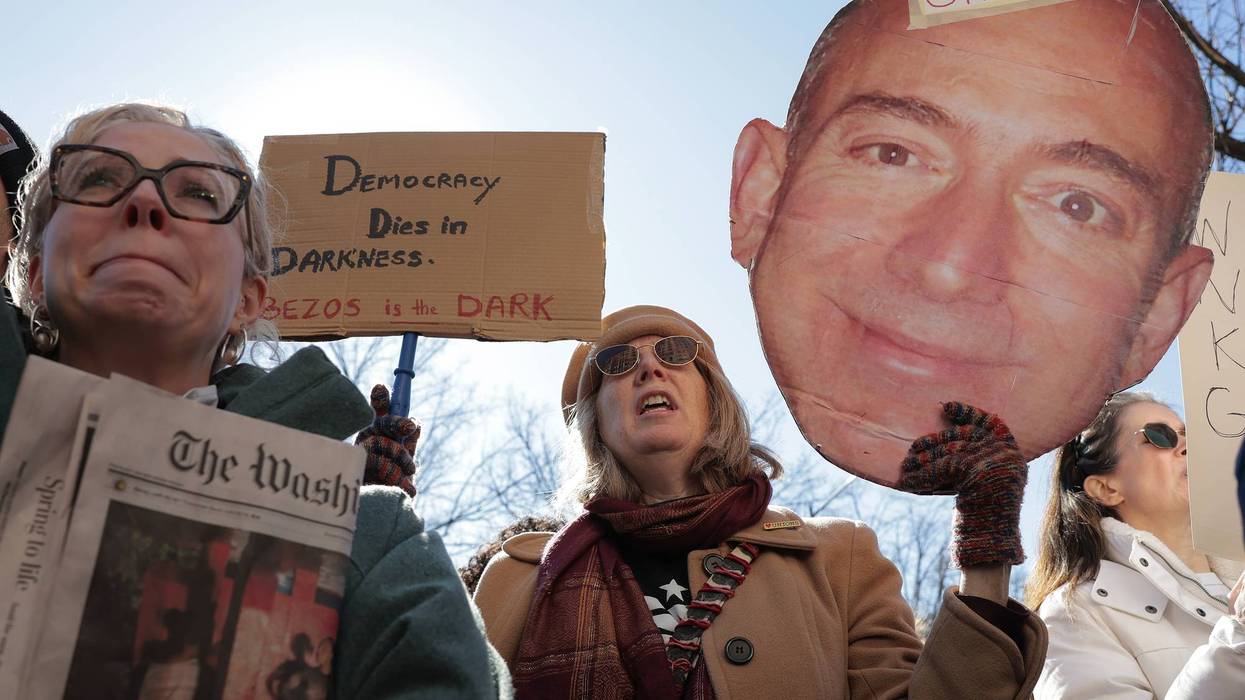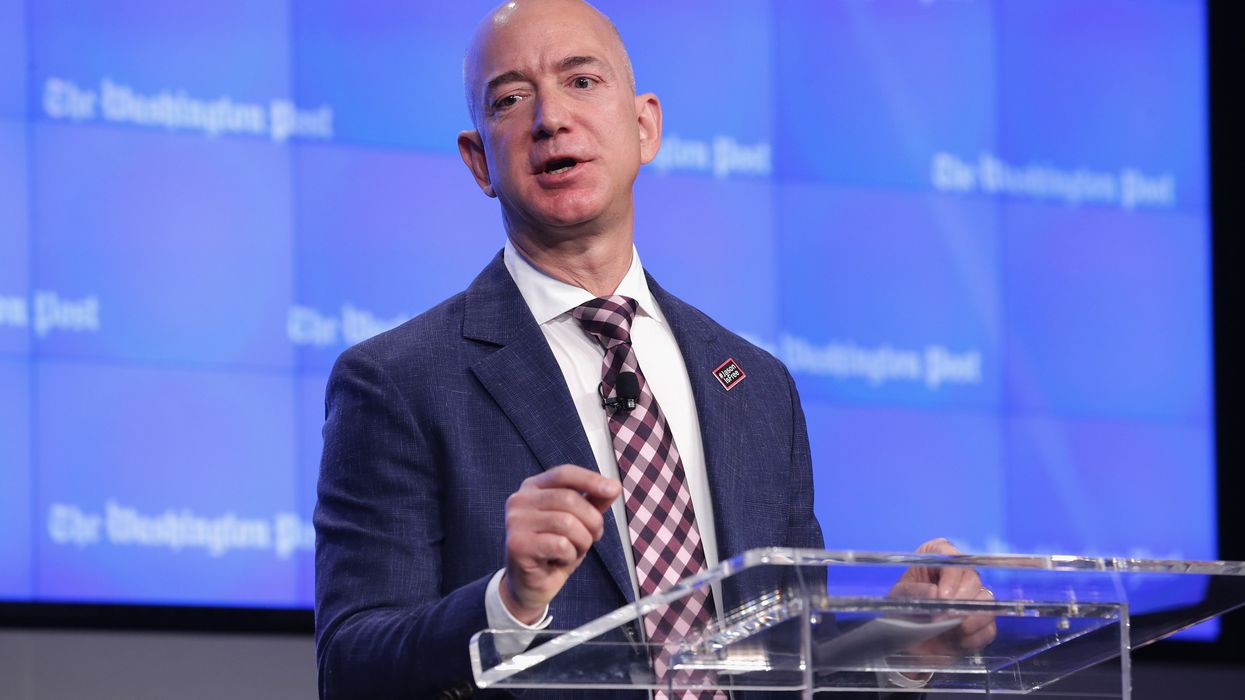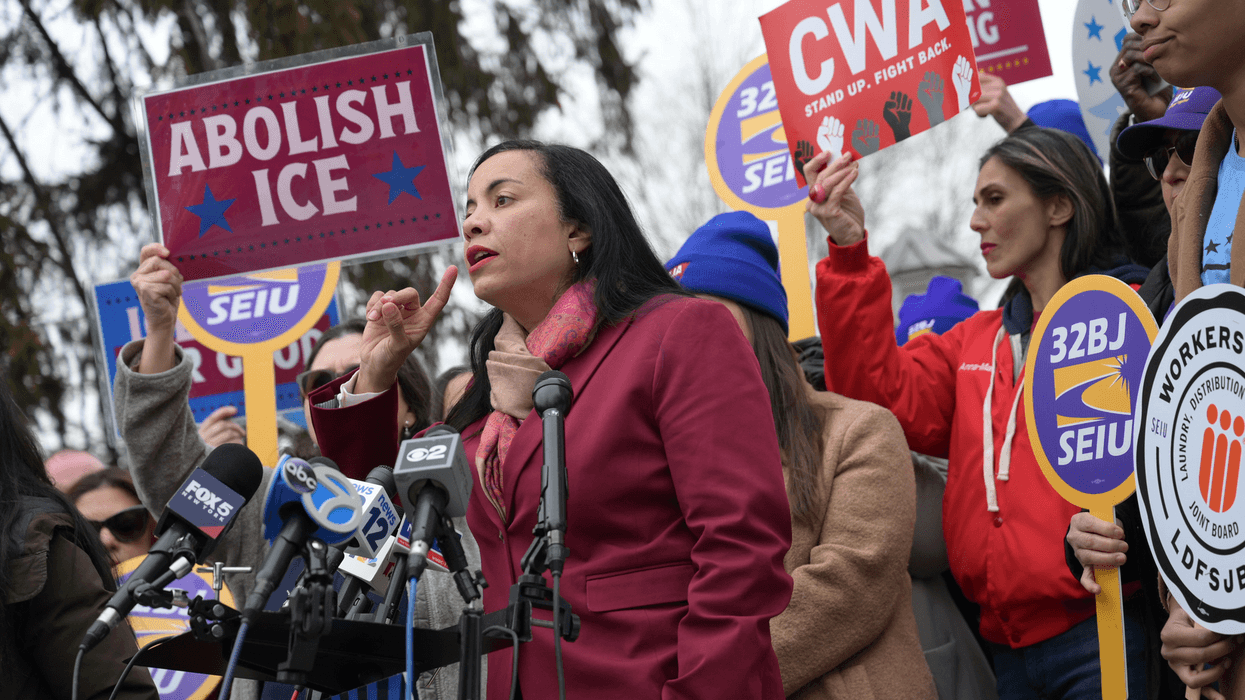The polycrisis afflicting our media necessitates a political economic analysis that focuses on ownership, control, and market structure. It also calls for critical analyses of how law and policy determine such power relationships—both how they’re weaponized against democracy and how they could be deployed to create a more democratic media system.
To understand contemporary media failures, we must tease apart overlapping but distinct forms of capture. There’s often a tendency to focus on state capture of media, especially in countries experiencing democratic backsliding, where both public and private media systems fall under government influence and control. US media failures, however, require a broader lens. Here, authoritarian encroachment is dependent upon preexisting forms of media capture—capitalistic and oligarchic. Below, I analyze how these layers build on each other but require different interventions.
Capitalistic Capture
Extreme commercialization has long defined the US media system. The US newspaper industry became highly commercialized in the late 1800s with its increased reliance on advertising revenues. US broadcast media followed a similar hyper-commercialized path when policymakers in the early 1930s essentially privatized the public airwaves instead of building a public media system. As a result, several corporate media networks came to dominate radio and flooded it with advertising-supported programming.
Television replicated radio’s hyper-commercialized model, with the very same corporations dominating another lightly regulated medium. Although the US eventually established a public broadcasting system in the late 1960s, it remained chronically underfunded—literally almost off the chart compared to other democracies in federal funding per capita. And Congress entirely rescinded even that paltry support last year.
Jeff Bezos purchased the Washington Post for less than half of what he paid for his superyacht, and now he’s dismantling the paper while currying favor with President Donald Trump.
Meanwhile, the few public interest protections that were installed to protect media diversity from unfettered capitalism—like the long-dead Fairness Doctrine—were gradually weakened or jettisoned altogether. The “Postwar Settlement,” a social compact which allowed commercial media to remain lightly regulated if they practiced social responsibility, has come undone over the ensuing decades as commercial logics overwhelmed public interest protections and professional norms.
The commercialization of US digital media began in earnest in the 1990s when the internet’s infrastructure, originally funded by the National Science Foundation, was privatized with little public debate. Today, capitalist logics permeate the entire digital stack, from the wires that deliver internet services to our homes (if we can afford the exorbitant rates from the “broadband cartel”), to the targeted advertising that operates as the internet’s core business model. Artificial intelligence is now following this same well-worn path.
In the extremely inegalitarian US, where billionaires command disproportionate power, treating our media as private commodities instead of public services all but guarantees concentration in the hands of oligarchs. To give one glaring example, Jeff Bezos purchased the Washington Post for less than half of what he paid for his superyacht, and now he’s dismantling the paper while currying favor with President Donald Trump. With primary media organizations reduced to the playthings of plutocrats, media oligarchy becomes the dominant paradigm.
Oligarchic Capture
As ownership concentration accelerates, US information markets tend toward monopolies and oligopolies. This trend, endemic to lightly regulated capitalist systems, has only increased with the erosion of media ownership restrictions, from the Telecommunications Act of 1996 to more recent “deregulatory” moves during two Trump administrations.
Extreme corporate consolidation creates a wide range of social hazards and harms. It has allowed Trump-aligned right-wing oligarchs to take control of vast media empires, from the Murdochs to the Ellisons. This kind of capture also manifests in algorithmic gatekeeping, such as Elon Musk’s X selectively amplifying and suppressing political speech. In Canada, Meta is blocking news media on its platform to avoid paying for content. More recently, concerns have risen that TikTok, following its acquisition by Trump-friendly owners, has begun to censor political expression.
Such oligarchic capture is the predictable culmination of what’s essentially a pay-to-play system where the highest bidder takes all. Under this regime, what Americans hear, see, and read is increasingly dictated by a handful of billionaires with their own agendas. These private tyrannies have the luxury of treating their media assets as a kind of “loss leader” for broader political and economic goals. Our hyper-commercialized media system was ready-made for this kind of weaponization, making authoritarian capture easy.
Authoritarian Capture
Highly concentrated media systems are structurally vulnerable to authoritarian capture. This is essentially the Viktor Orban model: Autocrats needn’t take over newsrooms at gunpoint; instead, they can count on friendly oligarchs to police the media for them. As a result, screens and airwaves are flooded with uninterrogated official narratives that flatter the administration in power.
In addition to arresting individual journalists, the Trump administration has engaged in various forms of regulatory intimidation. The Federal Communications Commission (FCC) Chairman, Brendan Carr, who’s been known to sport a gold lapel pin featuring Trump’s profile, recently informed Congress that the FCC is not an independent agency. As if to prove the point, Carr has shamelessly used the FCC to carry out Trump’s agenda, often by punishing—or threatening to punish—perceived enemies. He has used mergers as leverage to extort major news companies and influence media coverage favorable to Trump.
If capitalist capture is the foundational condition that turns our media against democracy and enables other types of capture, then the most transformative remedy must confront that root problem.
In other cases, the administration has threatened regulatory intervention against recalcitrant media companies and individual commentators, such as the comedian Jimmy Kimmel. Recently, the FCC has threatened to apply the “equal time” rule—requiring that broadcast media organizations give equal airtime to competing political candidates—against late-night and daytime television shows, which previously had been exempt from this rule. As the Trump administration bullies the media, many organizations have capitulated.
While shifts in media ownership and conglomeration are often narrated as natural developments—often featuring dramatic twists and turns of individual protagonists and business interests—it’s important to remember that our media institutions are human-made, structured, and maintained through law and policy. They’re subject to change if we as a society so wish. We must resist any sense of inevitability and dare to imagine democratic alternatives.
What’s To Be Done?
One line of defense against authoritarian media capture is public interest regulation. But decades of regulatory capture—where government agencies internalize the logics and imperatives of the industries they purportedly regulate—have hollowed out such normative foundations, rendering them vulnerable to co-option and “discursive capture.” With anti-democratic tendencies already entrenched, new federal policies are nonstarters for the near term, though targeted state and local initiatives may still be viable.
A frequently invoked—though rarely realized—solution to media conglomerates is to simply break them up. Moreover, antitrust arguments have gained prominence amidst a growing anti-monopoly movement, exemplified by Lina Khan’s admirable work chairing the Federal Trade Commission. Such anti-corporate and anti-oligarchic politics clearly resonate with broad swaths of the public and should be encouraged. But this strategy can be overly reliant on competition policy, presupposing that trust-busting a few corporate giants will return social responsibility to the marketplace.
No doubt, preventing or dismantling media conglomeration is critical. We’ve seen the dangers of these vertically and horizontally integrated firms, with tentacles across advertising, content production, distribution, and data extraction. If nothing else, shrinking them and diluting their political and economic power would be real progress.
But dealing with systemic media market failures requires a more fundamental intervention. Competition alone won’t bring local journalism back to news deserts, eliminate surveillance advertising, or guarantee affordable broadband. Furthermore, smaller, profit-driven media entities are likely to exact some of the same social harms as larger ones. Many of these problems are capitalism problems, not just monopoly problems.
Fortunately, the anti-monopoly toolbox contains instruments that do more than tame capitalist excesses through market discipline. For example, the public utility regulatory tradition offers a diverse set of policy tools, ranging from robust public oversight to institutional arrangements approaching municipal and public ownership. These models can directly challenge corrosive capitalist logics at the level of media governance, reflecting a more democratic vision of ownership and control.
If capitalist capture is the foundational condition that turns our media against democracy and enables other types of capture, then the most transformative remedy must confront that root problem. We should endeavor to create non-capitalist information and communication infrastructures. The clearest antidote to hyper-capitalistic media—an argument I’ve made in these pages before—is to remove media from the market altogether and create public alternatives. A “democratic capture” of our media would ensure these institutions serve us all, not just the wealthiest few.
Such a policy program is decidedly ambitious and long-term. It requires not just a Project 2029 but a Project 2050 for structural media reform. Despite such distant projections, we must begin to clearly articulate these plans now. It’s precisely during dark political times that we must assert bold policy visions for a democratic future.
This piece was originally published on the LPE Blog.




